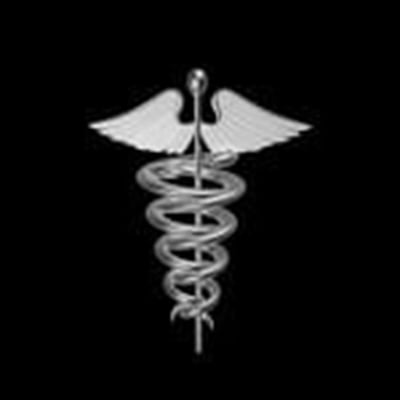It’s back-to-school time. If you’re a college junior or senior planning to apply for medical school, you might be perplexed about proper preparation and the many steps to take on the road to becoming a doctor. UMHS looks at what you should do now as an undergraduate to get ready for your medical education if you are applying to U.S. or Caribbean medical schools.
Keep Up Your Grades in All Courses
It may sound like a no-brainer, but many forget this bit of common sense. Since most medical school admissions committees look at your overall GPA, it is important to get good grades in all courses and not just “pre-med” or science classes. In a U.S. News and World Report article, “15 Secrets of Getting Good Grades in College“, Lynn F. Jacobs and Jeremy S. Hyman outline everything you need to succeed in college, from picking the right courses to smart study habits and making a structured plan to tackle your academic workload. Below are highlights:
- Make a plan. You probably have a daily calendar or planner on your smartphone or tablet. Use it to make a study schedule. “Enter in all your classes, exams, and papers, and professors' office hours,” the article says. “For the brave, also enter in the hours you plan to study each week for each course. That way, you'll have a plan for (or at least a fantasy about) what you'll be doing as the semester progresses.”
- Go to class. This is self-explanatory, but everyone knows how easy it is to miss classes. As Jacobs and Hyman explain, however, there can be consequences: “If you blow off the class right before Thanksgiving and the professor picks the essay question for the final from that very class . . . well, you can really do major damage to your GPA for the price of one class.”
- “Hook up” with professors. Spending time outside of class for help with the subject matter makes a big difference. “The most underused resource at college—and the one most likely to benefit your grade—is the office hour, either in person or electronic,” the authors say. “This is really the only time that you can get one-on-one help from a professor or TA. Find out when your teacher wants to meet and in what modality—traditional office hours, E-mail inquiry, Skype, or even Twitter or Facebook.”
- Play all four quarters. Jacobs and Hyman say most college courses are “backloaded” because more than half the grade is based on assignments due in the last month of the semester. They say to avoid extensions or incompletes entirely. “Many students, when they fall behind, think the solution lies in asking the professor for more time—or worse yet, a chance to finish the course over vacation or even into the next semester. This is almost always a bad strategy since it's twice as hard to complete the work without the deadline in place.”
- Do the extras. Some classes have end-of-the-semester activities that can improve your grade. “Take advantage of review sessions, extra office hours, and extra credit work,” the article says. “Especially in schools where there are no pluses and minuses, even a little grade improvement can push you over the hump (say, from B plus to A minus—that is, to A).”
Shadow Physicians, Volunteer & Be a Leader
 One of the best ways to know if becoming a doctor is something you really want to do is shadowing a physician. You get to see the daily life of a doctor, and it’s something that helps when applying to and interviewing for medical school.
One of the best ways to know if becoming a doctor is something you really want to do is shadowing a physician. You get to see the daily life of a doctor, and it’s something that helps when applying to and interviewing for medical school.
(Photo, inset right) Shadowing your family doctor is a great way to prepare for med school. Photo: FreeDigitalPhotos.net
The Association of American Medical Colleges (AAMC) website gives many tips for shadowing a physician, including the following:
- Ask your own doctor or a doctor you know. Shadowing your family doctor is a good start because you already have a working relationship with him/her. “You can also ask your teachers, professors, and pre-med or academic advisors if they know any doctors that other students have shadowed in the past,” the AAMC website says, adding that college students should “leverage any relationships your school may have with a medical school or hospital on campus.”
- Find out how long you can shadow. Shadowing can either be one day or a few hours a day for several weeks or months.
- Find out what the doctor is comfortable with or what has worked well in the past.
- Dress professionally and comfortably. The AAMC website says this means “dress pants and a tie for men, dress pants or a dress for women, and closed-toed shoes you can walk in all day.”
- Bring a notebook. You should ask questions and take notes in between patients; “not in front of them.”
- Expect to talk to patients. The AAMC says doctors are required to introduce you to patients, so you will talk to people. However, some may be uncomfortable having you in the room during an examination or the entire appointment, so don’t be alarmed if you’re asked to step out. “You may be required to sign a HIPAA compliance document stating that you will not disclose any patient information or details that could lead to patient identification,” the website says.
- Write a "thank you" note to give your doctor on the last day.
- Ask for a letter of recommendation if you think it went well. “Don’t wait until you need it because the experience may not be fresh in the doctor’s mind by that time,” the AAMC says. “Reflect on what you’ve learned from your shadowing experience and write down anything you may want to remind yourself of when you’re writing your personal statements for medical school.”
Volunteer experience (community service) in a healthcare setting is one of the top things medical school admissions committees are looking for, says the website Premedlife Magazine in the article “5 Extracurricular Activities Every Medical School Admissions Committee Wants to See”.
The article explains, “Altruism, the unselfish concern for the welfare of others, is something that all physicians pledge to when they take the Hippocratic Oath, so wouldn't it be crazy for medical schools not to take this into account?”
The following is a summary of things the article says are important, all of which deal with volunteer work:
Volunteering/Community Service (Medical): The AAMC said in a report that, besides good letters of recommendation, medical-related community service is the second most-important factor for entrance to medical school. You can volunteer at a hospital or clinic; a summer camp, as a counselor working with disabled children; a blood bank; a medical corps to help crisis-affected communities; as an emergency medical technician.
Community Service (Non-Medical): Volunteering for something non-medical shows “your commitment and dedication to something that will do nothing other than foster your selfless tendencies.” Examples include volunteering for nonprofits; as a manager or coach for Little League; and organizing a coat, book or toy drive for needy individuals.
Leadership Experience: Premedlife says, “Many medical school look favorably upon applicants who have held leadership roles and some actually require applicants to have at least one leadership experience to apply.” Leadership experience can include holding an office in student government; mentoring at-risk youth through a program like Big Brothers, Big Sisters; becoming a team captain for a sport; organizing a campus or community event.
Experience with Underserved Populations: Doctors are urgently needed in underserved areas of the nation, especially with the predicted shortage of 52,000 doctors by 2025. “Medical schools planning to participate in the Obama Administration’s plan for creating jobs and increasing the number of primary care providers are looking to attract students who genuinely share the same desire to become a part of this new primary care workforce,” the article says.
Join Pre-Med Clubs & Societies
 There are many benefits of joining a pre-med club/society, but most require students to do a certain number of hours of volunteer work, pay dues either each semester or annually, and can be time-consuming.
There are many benefits of joining a pre-med club/society, but most require students to do a certain number of hours of volunteer work, pay dues either each semester or annually, and can be time-consuming.
The website Going to Med School says pre-med clubs/societies have many critics, but joining one has unique perks. “The greatest and universal advantage to joining a pre-medical society is that you will be able to listen to older students who have been through the medical school application process before, and can give great advice,” the website explains.
Pre-med clubs have both pros & cons. Image: Renjith Krishhan/FreeDigitalPhotos.net
Prepare for the MCAT
If applying to medical school is your goal, you already know about the MCAT. The website How Stuff Works has a useful article, “Top 10 Tips for Preparing for the MCAT”, in which authors Patrick J. Tiger and Matt Cunningham give solid advice for acing the MCAT. Following are short summaries of the tips:
Create a Plan of Attack: Start preparing three months in advance, and create a step-by-step study plan
Dig out Old Class Textbooks and Notes: You can spend a lot of money on MCAT prep courses, but why not start by studying resources you already have? The article advises, "Dig out your old math, physics, biology, general chemistry and organic chemistry textbooks and test yourself on some of the material. You'll quickly identify some of your strengths and weaknesses in the process.”
Practice, Practice, Practice: There are affordable practice exams to prepare you for the MCAT. For $35, the Association of American Medical Colleges (AAMC) "offers an assortment of online practice exams made up of actual questions from past MCATs, plus a free practice test that you can take an unlimited amount of times."
Post-Mortem Your Tests: The authors recommend looking over old exams, giving this useful advice: "Remember, tests don't stop with the grade. There's a lot to gain from examining your finished work. Go through every practice test, identifying the questions that you got wrong and analyzing why you didn't know the right answer."
Get in Shape Physically, Mentally and Emotionally: College students often avoid the gym, regular exercise and eat unhealthy food, but doing so can have negative ramifications when preparing for the MCAT.
Stress and anxiety also take a toll when gearing up for the MCAT. The authors write, "You're not just taking a test; you're also testing yourself. After making sure all those facts find footholds in your brain, you'll need to ensure you're clear-headed to perform your best. Many students suffer from test anxiety, with symptoms ranging from headaches and sleeplessness to irritability and memory loss. Mental and emotional strain can present a very real threat to your MCAT success."
To alleviate the problem, the authors suggest finding an activity that helps you relax, whether it's simply visualizing yourself doing well on the MCAT to yoga-style breathing exercises and meditation.
Find a Study Buddy—Or Several: Consider using a study group of one or two people as you prepare for the MCAT. "You can review more topics, share answers and compare notes," Kiger and Cunningham write. "Plus, it can be fun. A group of like-minded, supportive students will explain concepts to each other and spend time figuring out why they reach different answers to the same question, all of which add depth to your study experience."
Check out Other Exams: The authors suggest looking at other exams besides the MCAT for practice. "You might be surprised at the similarities between the MCAT, the LSAT and the GRE.”
Think Ahead for a Good Test Day: This may sound silly, but the little things do count on test day. Many prospective medical school students forget the directions to the MCAT test location, the importance of eating a good breakfast, and dressing comfortably for the exam. “Scrounging for your coat at the last minute or grabbing a candy bar for breakfast isn't going to help your chances on the test,” Kiger and Cunningham say. “After all your hard work, you deserve a better finish than what that kind of morning will provide.”
They advise wearing what’s most comfortable for you on your test day, whether it’s old sweatpants and flip-flops or bringing along a sweater. “Remember that the testing center may be warmer or colder than you anticipate -- wear layers to keep yourself at a comfortable temperature,” they say.
Consult Your Colleagues: One of the best ways to know what to expect from the MCAT is simply speaking with people who have taken it. “Whether they've taken the MCAT or a comparable standardized test, you can reach out for advice on what to expect,” the authors say. “There's much to be gained from studying the materials, taking practice tests and reading through informative guides like this list. Still, the face-to-face exchange of ideas with an experienced professor, doctor, upperclassman or friend presents an excellent learning opportunity.”
(Top photo) Studying hard is only one aspect of preparing for med school. Photo: FreeDigitalPhotos.net
About UMHS:
Built in the tradition of the best US universities, the University of Medicine and Health Sciencesfocuses on individual student attention, maintaining small class sizes and recruiting high-quality faculty. We call this unique approach, “personalized medical education,” and it’s what has led to our unprecedented 96% student retention rate, and outstanding residency placements across the US and Canada. UMHS is challenging everything you thought you knew about Caribbean medical schools.

Scott is Director of Digital Content & Alumni Communications Liaison at UMHS and editor of the UMHS Endeavour blog. When he's not writing about UMHS students, faculty, events, public health, alumni and UMHS research, he writes and edits Broadway theater reviews for a website he publishes in New York City, StageZine.com.















